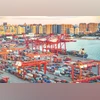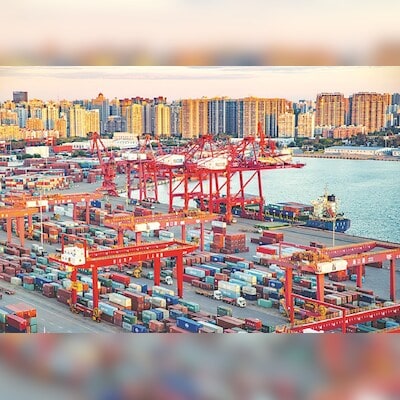)
As China attempts to pivot and direct more exports to Southeast Asia, it is also facing push back there. | File Photo
China’s exports grew at their fastest pace in nearly 1-1/2 years in August, suggesting manufacturers are rushing out orders ahead of tariffs expected from a growing number of trade partners, while imports missed forecasts amid weak domestic demand.
The mixed trade data highlights the challenge facing Beijing as policymakers try to revive domestic demand without becoming too reliant on exports to bolster growth.
China’s economy has failed to fire amid a prolonged property sector downturn, and a survey last week showed exports in the doldrums and factory gate prices at their worst in 14 months, pointing to producers slashing prices to find buyers.
Outbound shipments from the world’s second-largest economy grew 8.7 per cent year-on-year in value last month, the quickest since March 2023, customs data showed on Tuesday, beating a forecast 6.5 per cent increase in a Reuters poll of economists and a 7 per cent rise in July.
But imports increased by just 0.5 per cent, missing expectations for a 2 per cent boost and down from the 7.2 per cent growth a month prior.
“The strong export performance and trade surplus is favourable to economic growth in the third quarter and whole year,” said Zhou Maohua, a macroeconomic researcher at China Everbright Bank.
“However, the global economic and geopolitical environment is complicated and China’s exports face a lot of headwinds,” he added.
Economists have warned that Beijing risks undershooting its growth target if it becomes too reliant on exports, following a series of recent lacklustre data, raising pressure on policymakers for more stimulus to revive China’s economy.
Moreover, mounting trade barriers are emerging as another significant obstacle, threatening China’s price-driven export momentum.
Beijing’s efforts to negotiate with the European Union to ease tariffs on Chinese electric vehicles (EV) have made little headway.
And Canada last month announced a 100 per cent tariff on Chinese EVs, along with a 25 per cent tariff on Chinese steel and aluminium.
As China attempts to pivot and direct more exports to Southeast Asia and South Asia, it is also facing push back there.
India is planning to raise tariffs on Chinese steel, Indonesia is eyeing heavy duties on textile imports, and Malaysia opened anti-dumping investigations into plastic imports from China and Indonesia.
Still, some analysts expect outbound shipments to ride out the storm, given the relative inexpensiveness of China’s yuan and the relative ease with which exporters can re-route their wares to avoid the tariffs.
“Outbound shipments are likely to remain strong in the coming months. Admittedly, more barriers are being erected,” said Zichun Huang, China Economist at Capital Economics.
“We doubt the tariffs announced so far will prevent real effective exchange rate declines from fuelling further gains in China’s global export market share,” she added.
First Published: Sep 10 2024 | 10:09 AM IST


